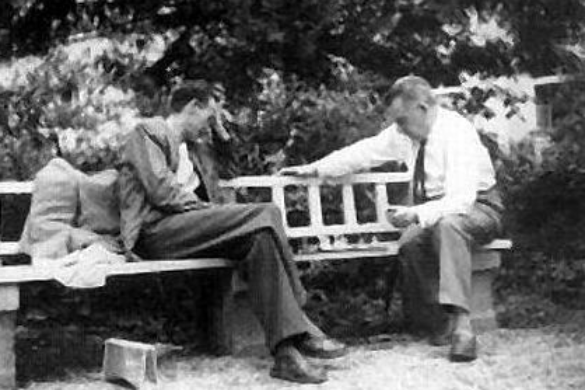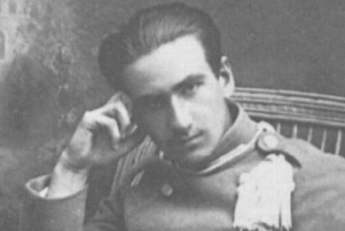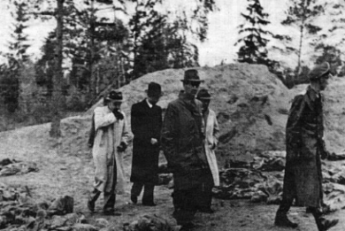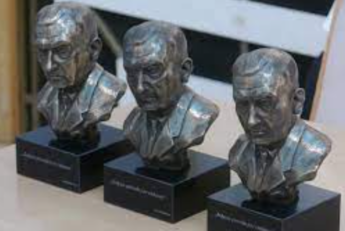
Friends of Józef Mackiewicz in exile
While in exile, Józef Mackiewicz had quite a large group of friends whom he could count on in difficult times.
In Munich, Barbara and Józef Mackiewicz were friends for many decades with the employees of the Polish Section of Radio Free Europe. They were Wanda Stankowska, Kazimierz Zamorski with his wife Urszula, Wiktor Trościanko with his wife Wiwa, and in London, Mieczysław Grydziewski and Michał Chmielowiec were among the Mackiewicz friends. Politically, Mackiewicz was closest to the London community associated with the government-in-exile and maintaining an oppositional position towards the authorities of communist Poland. In addition, until the end of his life, the writer maintained contact with his family in Poland and Lithuania.
The personality of Józef Mackiewicz was treated quite ambiguously, some called him a freak who didn’t understand anything. Others admired his great talent but rejected him as a person. Zygmunt Hertz wrote with delight about the report “Ponary. Baza”, but he called the author a mad guy, dull and not understanding anything. Stefania Kossowska, on the other hand, wrote about a great talent who in “Road to Nowhere” combines “a wonderful ability to observe nature” with “a moving description of the Soviet occupation in the Vilnius region”. At the same time, she considered Mackiewicz to be the most controversial writer in contemporary Polish literature, possessed by a “journalistic passion”. According to Kazimierz Maciąg, such a distance was caused by the writer’s consistency in treating people definitely on the opposite side of the political “barricade”. In such a case, Mackiewicz did not forgive the resentment, as exemplified by the relationship with his brother – which was suddenly and radically broken off when Stanisław Cat-Mackiewicz decided to return to Poland in 1956, which meant betrayal for Józef Mackiewicz.
Józef Mackiewicz felt best in the company of people with similar life experiences. Years later, Jan Bogatko recalls his interview with Mackiewicz: “I ask the writer my first question, a moment of silence and then a short answer is given: – Yes. It confused me a bit, but it didn’t knock me off the hook. I’m asking the next in a long list of questions. (…) Another moment of silence and the answer no longer than the previous one: – No. (…) I thought. What am I doing wrong, why won’t he talk to me? (…) I turned off the microphone and, looking around the room, raised my glass to my lips. – Tincture? I asked, pointing to the bottles standing on one of the shelves of the wall bookcase. – Is it smorodina (blackcurrant)? – Yes. How did you come up with it? Mackiewicz turned to me. – I have family connections in Vilnius – I pushed forward – and I know Smorodinówka from my family home. After these words, the stiffness of the writer disappeared, Mackiewicz opened up and was able to talk about himself. Another interlocutor of Mackiewicz, Stanisław Wujastyk, recalls that they had a good time talking to each other, as they shared a common Vilnius past and a passion for ornithology.
Mackiewicz’s only most faithful companion was his wife Barbara Toporska, who renounced her own comforts, sacrificing herself for her husband – so that he could write.
Source:
Kazimierz Maciąg, Sam jeden Józef Mackiewicz – pisarz i publicysta, Warszawa 2021.







